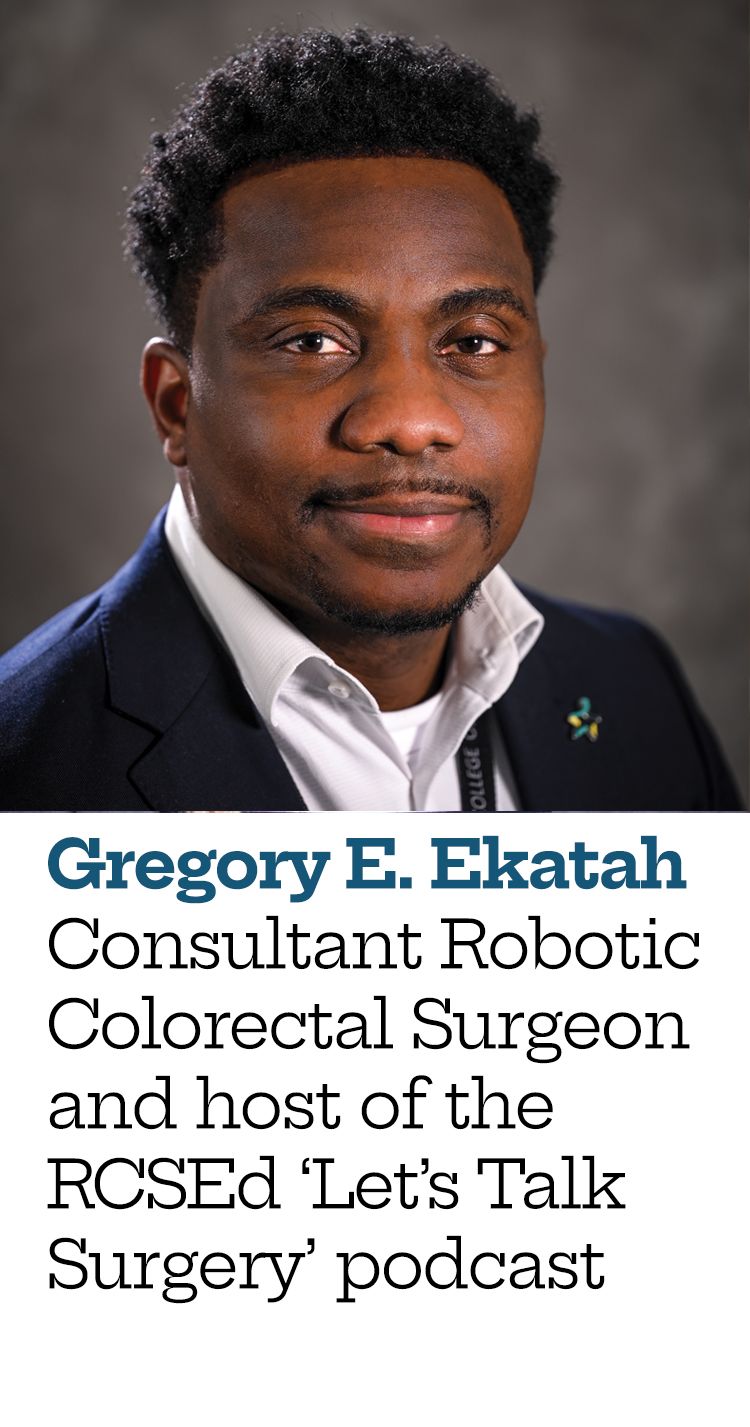(COPY) (COPY) (COPY) (COPY)

The power of podcasting
The RCSEd has been branching out into new media to help spread the patient safety word, writes Gregory Ekatah

As part of our Hippocratic Oath, we promise to keep our patients safe. Medicine in general, but surgery specifically, involves complex interactions between individuals, processes and other factors coming together to ensure patients, including those requiring surgery, do so safely and with positive outcomes.
As such, patient safety is an integral part of all we do as surgeons. In recognition of this, the College Patient Safety Group has been central to, and active in, driving forward the RCSEd’s patient safety strategy.
One arm of this work involves the production of podcasts exploring patient safety concepts, workstreams and individuals involved in this space. Teaming up with the ‘Let’s Talk Surgery’ podcast over three series, a total of 13 podcasts have been released on subjects ranging from ‘improving safety out of hours’ to the concept of ‘just culture, not blame culture’.
PERSONAL EXPERIENCE
In one of the first episodes of the podcast, there was a fascinating conversation with a well-known patient safety advocate and human factors expert, Martin Bromiley. It is well worth setting aside 53 minutes to be inspired.
Martin shares the personal experience of his wife’s death in 2005 during a ‘routine operation’, a dark day from which came a ray of hope and a desire for change to improve the lives of others – by exploring the factors at play when things go wrong through the prism of human factors and a focus on just culture, not blame.
An important element of patient safety is the processes employed in healthcare systems. The patient safety series explores some of these, including the WHO’s surgical checklist with Tom Weiser – a co-creator of the checklist used all around the world.
The RCSEd Trainees’ Committee also looks at the systems with which trainees have to contend during their on-calls/out of hours commitments. The ‘Improving safety campaign’ episode highlights the scale of the problem as documented by trainees in a national survey. It also describes examples of good practice and some solutions to be considered. To help improve systems and processes, the MSc in patient safety and clinical human factors offers its participants a structured approach and the tools needed to succeed in this space.
The programme is discussed on the podcast by Simon Paterson-Brown, consultant surgeon and co-director of the course.
A surgeon’s journey
A key component of patient safety considerations has to be the people involved in patient care.
The podcast has consciously focused on the human element of this. We discuss the motivations of some of the prominent individuals in this space, their drivers and the work they continue to do.
Maryanne Mariyaselvan, a former surgical trainee, now works in patient safety innovation, having come through a non-typical route. She was awarded the prestigious British Empire Medal for her work.
David Alderson, ENT consultant surgeon, shares his fascinating work on ‘When things go wrong’, taking us on a journey from the viewpoint of the surgeon, considering what happens following a complication.
We explore guilt, blame and the psychological impact via the medium of art. Through pictures, poems and drama, he presents a novel approach to reflecting on the inevitable experience in the life of a surgeon.
Similarly, Kevin Turner, consultant urologist, discusses the concept of secondary casualty and some of the continuing research of the impact of complications on surgeons. The RCSEd’s ‘Let’s Talk Surgery’ podcast has provided this vast resource on patient safety through a number of series and standalone episodes.
I am grateful to all who have contributed, and to Anna Paisley, chair of the Patient Safety Group, for her collaborative efforts.
Watch this space for more patient safety podcasts in the near future and enjoy the available content through the RCSEd website, app or wherever you get your podcasts.


